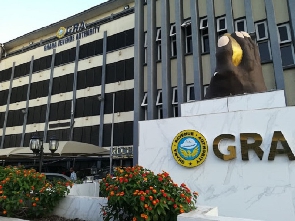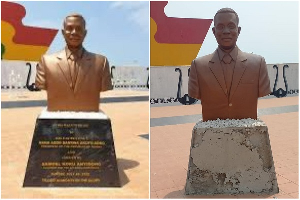The Ghana Revenue Authority (GRA) has advised the buying public to always request VAT invoices from businesses that are registered to pay tax.
Head of Accra Central Enforcement Unit of GRA, Joseph Annan, gave the advice during a VAT enforcement and test-purchase exercise in Accra.
“Attention will soon be shifted to buyers who do not request VAT invoices after purchases. We want to ensure that businesses and customers collaborate to make tax collection easy,” he said.
The tax collector maintained that refusal of buyers to request for invoices from taxpaying businesses contravenes the VAT law.
Eight businesses were clamped for the offence of selective and non-issuance of VAT invoices during the enforcement exercise at East Legon and Adenta.
The GRA, according to Mr. Annan, will conduct a pre-emptive assessment with full audit and make moves for court processes to prosecute the eight businesses if their case is brought to finality and they are found culpable.
“Section 41 of the VAT Act stipulates that businesses issue the VAT invoice at all times. Failure to do this, contravenes the law,” Mr. Annan explained.
The Authority said it has listed some 93 businesses across the capital as targets of enforcement and compliance this year.
This year, 2023, the GRA has set a revenue target of GH¢206billion – of which the Customs Division is expected to collect some GH¢28.5billion.
Importantly, the tax collector is seeking to leverage the e-VAT regime to better collections as the Authority currently rakes in some GH¢23.4billion from VAT, data from the Finance Ministry have shown.
The country’s VAT penetration and performance is regarded as inadequate among countries in the sub-region – positioned at about 17 percent compared to Benin which has a penetration of up to 40 percent; Cote d’ Ivoire, 32 percent; Niger, 29 percent; Senegal, 33 percent; Sierra Leone, 25 percent; and Togo, 43 percent.
Business News of Monday, 22 May 2023
Source: thebftonline.com

















